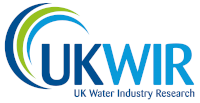Know your customer: Communication during supply interruption events
Overview
Supply interruptions are highly disruptive and can negatively impact customer satisfaction. While water companies have made progress in responding to these events, there is room for improvement in customer communication.
Customers perceive leakage as wasteful and a cause of higher bills, leading to increased pressure on water companies to reduce it. As a result, Ofwat has set stretching Outcome Delivery Incentive (ODI) targets with significant financial penalties for all defaulting water companies.
To meet these regulatory targets and futureproof water supplies, companies must significantly reduce leakage and minimise supply interruptions. However, providing timely information, identifying affected customers, and tailoring messages to diverse demographics and preferences remain a challenge for the sector.
The problem
Interruption-to-supply (ITS) events are considered some of the most disruptive to water company customers and have the potential to significantly impact customer measure of experience (C-MeX) performance measures.
Water companies have made great strides in improving their response to ITS incidents in recent years. However, there is more that can be done and ever-increasing customer expectations will continue to drive the need for timely, effective and fit for purpose communication.
This has resulted in several strategies and approaches being adopted across the industry with varying levels of success.
Communications workshops
“Preventing water supply interruptions is the first priority for water companies, but in the event of an interruption, effective communication with those affected is crucial,” explains Samuel Fox, Chief Strategic Planner (Water) at United Utilities.
Virtual workshops were delivered by UKWIR during the summer of 2021, aimed at sharing knowledge and best practices within the water sector and supply chain, and focussed on improving customer communication and water use management during short-term supply interruptions.
Pre-workshop surveys: To prepare for the workshops, surveys were sent to water companies and industry stakeholders including Water UK, the Pipeline Industries Guild and Consumer Council for Water to understand current practices and identify areas for improvement.
Workshop One explored current effective communication strategies, the role of emerging technologies and techniques to influence customer behaviour during interruptions. Building on these insights, Workshop Two delved deeper into practical aspects of customer engagement, identified emerging trends in communication technologies, and explored methods to measure the impact of communication strategies on customer behaviour.
The workshops aimed to generate actionable recommendations, including short-term improvements and long-term research projects.
Samuel Fox, who was part of the project steering group, added, “The UKWIR project drew on good practice from across the sector and identified areas for collective improvement, ensuring customers are well informed on the water company response and understand what they need to do when an issue occurs.”
Conclusions and recommendations
Several findings came out of the two workshops.
A key theme throughout was the need to “Know Your Customer, (KYC)”, to understand how to support the different customer demographics and how best to communicate with them. This led to the creation of a ‘Practitioners Guide’, which sets out key learnings from the workshops, including which type of communication is best for specific demographics, presented as an infographic. The Guide also details good practice in customer communication, for use by water companies.
The workshops found that data accuracy is crucial for effective communication, therefore, improving customer contact details and using data analysis can enhance messaging precision.
Timely communication is also essential, with initial responses within an hour being the target. Visual communication, such as images and videos, effectively conveys information to a wider range of audiences and transcends language barriers.
In addition, internal education and upskilling are vital to understanding customer needs and delivering a personalised service. The workshops found that collaboration with community groups can expand the reach of communications during an ITC event.
While phone services are declining, they remain essential, and can be complimented with social media, instant messaging and self-service tools. Ad-hoc surveys were also suggested to gather valuable data during events.
The participants noted that regulatory targets and General Data Protection Regulation (GDPR) compliance present strategic challenges and found that balancing incident resolution with effective communication is crucial to avoid negative impacts.
Future of ITC communications
The way water companies communicate with customers during supply interruptions has significantly evolved with the advent of new technologies. Real-time updates, visual content, and personalised messaging have improved customer experience.
However, challenges such as data quality, diverse customer needs, and regulatory pressures remain. To address these challenges, collaboration, data-driven insights and innovative communication strategies are essential.
Future UKWIR research will focus on understanding customer behaviour and mitigating ‘panic buying’ behaviours, to further enhance the effectiveness of communication during supply disruptions.
The project falls under UKWIR’s research theme 1: providing the services society, needs, expects and values. The lead contractor was RPS Group, and it was project managed by Rebecca Haylock. The steering group was comprised of representatives from Northumbrian Water, UKWIR, Yorkshire Water, United Utilities, Thames Water, Sutton and East Surrey Water, Scottish Water and South East Water.
